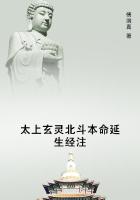Rabelais had a wonderful knowledge of the prose and the verse of the fifteenth century: he was familiar with Villon, Pathelin, the Quinze Joies de Mariage, the Cent Nouvelles, the chronicles and the romances, and even earlier works, too, such as the Roman de la Rose. Their words, their turns of expression came naturally to his pen, and added a piquancy and, as it were, a kind of gloss of antique novelty to his work. He fabricated words, too, on Greek and Latin models, with great ease, sometimes audaciously and with needless frequency. These were for him so many means, so many elements of variety. Sometimes he did this in mockery, as in the humorous discourse of the Limousin scholar, for which he is not a little indebted to Geoffroy Tory in the Champfleury; sometimes, on the contrary, seriously, from a habit acquired in dealing with classical tongues.
Again, another reason of the richness of his vocabulary was that he invented and forged words for himself. Following the example of Aristophanes, he coined an enormous number of interminable words, droll expressions, sudden and surprising constructions. What had made Greece and the Athenians laugh was worth transporting to Paris.
With an instrument so rich, resources so endless, and the skill to use them, it is no wonder that he could give voice to anything, be as humorous as he could be serious, as comic as he could be grave, that he could express himself and everybody else, from the lowest to the highest. He had every colour on his palette, and such skill was in his fingers that he could depict every variety of light and shade.
We have evidence that Rabelais did not always write in the same fashion.
The Chronique Gargantuaine is uniform in style and quite ******, but cannot with certainty be attributed to him. His letters are bombastic and thin;his few attempts at verse are heavy, lumbering, and obscure, altogether lacking in harmony, and quite as bad as those of his friend, Jean Bouchet.
He had no gift of poetic form, as indeed is evident even from his prose.
And his letters from Rome to the Bishop of Maillezais, interesting as they are in regard to the matter, are as dull, bare, flat, and dry in style as possible. Without his signature no one would possibly have thought of attributing them to him. He is only a literary artist when he wishes to be such; and in his romance he changes the style completely every other moment: it has no constant character or uniform manner, and therefore unity is almost entirely wanting in his work, while his endeavours after contrast are unceasing. There is throughout the whole the evidence of careful and conscious elaboration.
Hence, however lucid and free be the style of his romance, and though its flexibility and ease seem at first sight to have cost no trouble at all, yet its merit lies precisely in the fact that it succeeds in concealing the toil, in hiding the seams. He could not have reached this perfection at a first attempt. He must have worked long at the task, revised it again and again, corrected much, and added rather than cut away. The aptness of form and expression has been arrived at by deliberate means, and owes nothing to chance. Apart from the toning down of certain bold passages, to soften their effect, and appease the storm--for these were not literary alterations, but were imposed on him by prudence--one can see how numerous are the variations in his text, how necessary it is to take account of them, and to collect them. A good edition, of course, would make no attempt at amalgamating these. That would give a false impression and end in confusion; but it should note them all, and show them all, not combined, but simply as variations.
After Le Duchat, all the editions, in their care that nothing should be lost, made the mistake of collecting and placing side by side things which had no connection with each other, which had even been substituted for each other. The result was a fabricated text, full of contradictions naturally.
But since the edition issued by M. Jannet, the well-known publisher of the Bibliotheque Elzevirienne, who was the first to get rid of this patchwork, this mosaic, Rabelais' latest text has been given, accompanied by all the earlier variations, to show the changes he made, as well as his suppressions and additions. It would also be possible to reverse the method. It would be interesting to take his first text as the basis, noting the later modifications. This would be quite as instructive and really worth doing. Perhaps one might then see more clearly with what care he made his revisions, after what fashion he corrected, and especially what were the additions he made.
No more striking instance can be quoted than the admirable chapter about the shipwreck. It was not always so long as Rabelais made it in the end: it was much shorter at first. As a rule, when an author recasts some passage that he wishes to revise, he does so by rewriting the whole, or at least by interpolating passages at one stroke, so to speak. Nothing of the kind is seen here. Rabelais suppressed nothing, modified nothing; he did not change his plan at all. What he did was to make insertions, to slip in between two clauses a new one. He expressed his meaning in a lengthier way, and the former clause is found in its integrity along with the additional one, of which it forms, as it were, the warp. It was by this method of touching up the smallest details, by ****** here and there such little noticeable additions, that he succeeded in heightening the effect without either change or loss. In the end it looks as if he had altered nothing, added nothing new, as if it had always been so from the first, and had never been meddled with.













